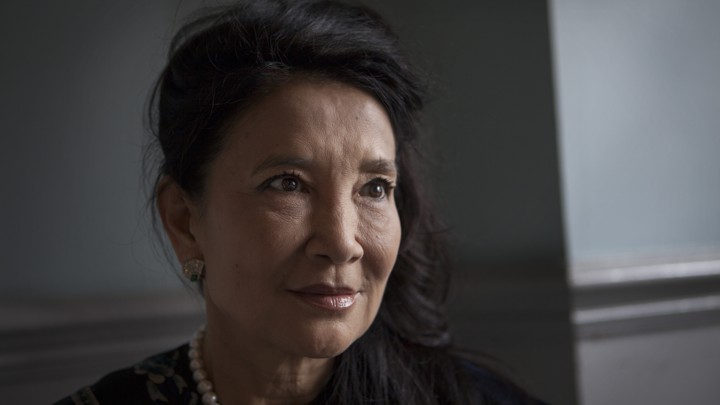Jung Chang is one of the most celebrated chroniclers of modern China. Her life spotlights the threat that writing still holds for the country’s rulers.
If you grew up in China in the 1950s and ’60s, as Jung Chang did, the last thing you aspired to be was a writer. “Writing was the most dangerous profession,” she told me recently.
In fact, writing was taken so seriously that most of the violent purges engineered by the Chinese Communist Party’s demigod leader, Mao Zedong—including the Cultural Revolution—began with an attack on some article or play or piece of literary criticism on the grounds of its alleged bourgeois or anti-Mao characteristics. There would be an opening salvo written by a Maoist acolyte, after which everybody who was anybody in China would line up in an Orwellian exercise of ritual denunciation of the isolated and defenseless writer. From there, the campaign would expand to claim hundreds of thousands of victims. “No parents would tell their child, ‘Become a writer,’” Chang said.

Of course, Chang did become a writer, leaving China to study in Britain in 1978, and over time a celebrated chronicler of the modern Chinese experience in the English language, one of the first from China itself to overturn some of the romantic-revolutionary conceptions of Mao and his era that had a remarkably long life in the West.
Her first book, Wild Swans: Three Daughters of China—a memoir of her grandmother, her mother, and herself living through China’s tragically turbulent 20th century—sold 10 million copies and was probably the most widely read personal account ever to come directly out of the belly of the Chinese beast. She followed that up 12 years later with a contentious, blistering, 800-page treatment of Mao himself, co-written with her husband, the historian Jon Halliday; then came an eye-opening revisionist biography of the Empress Dowager Cixi, a sinister villain in the eyes of most previous historians, a progressive feminist hero to Chang.
read more here @ The Atlantic

No comments:
Post a Comment